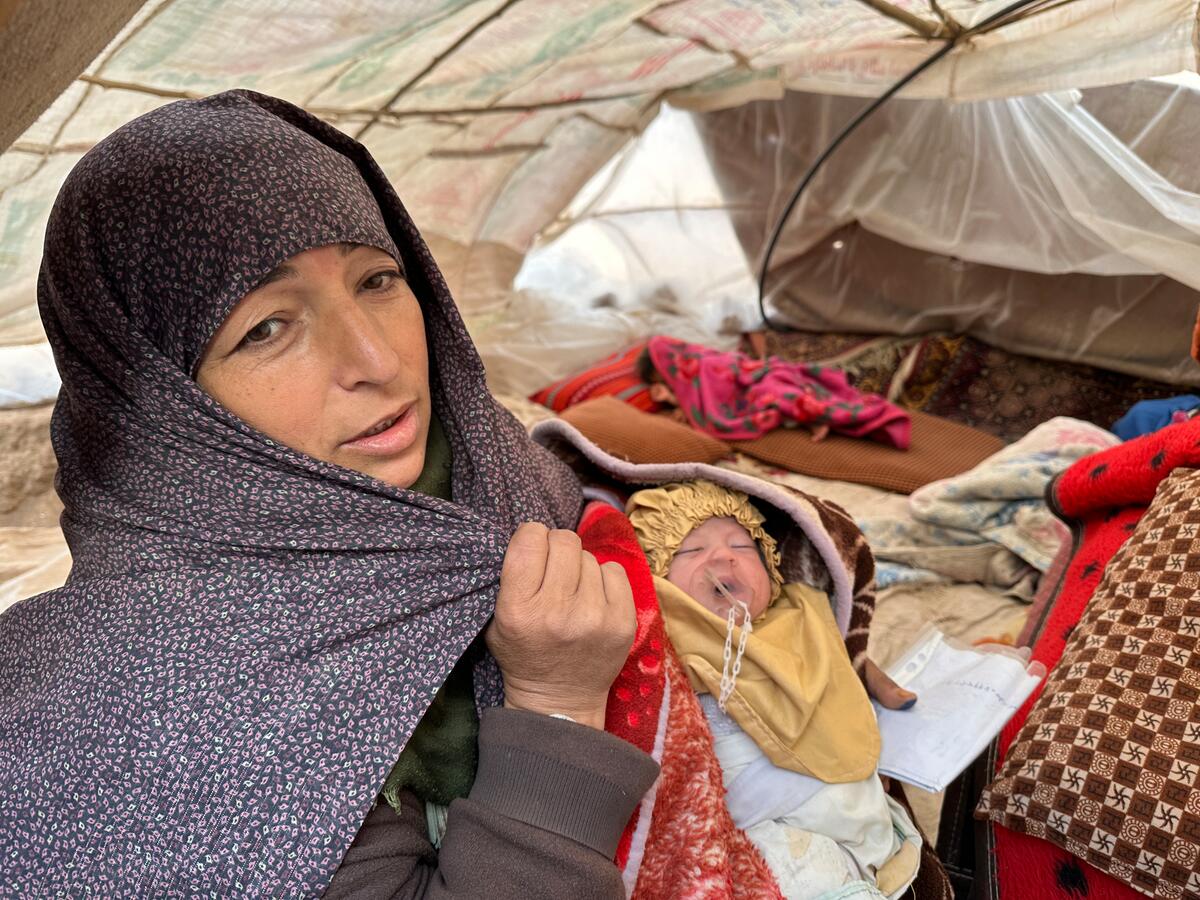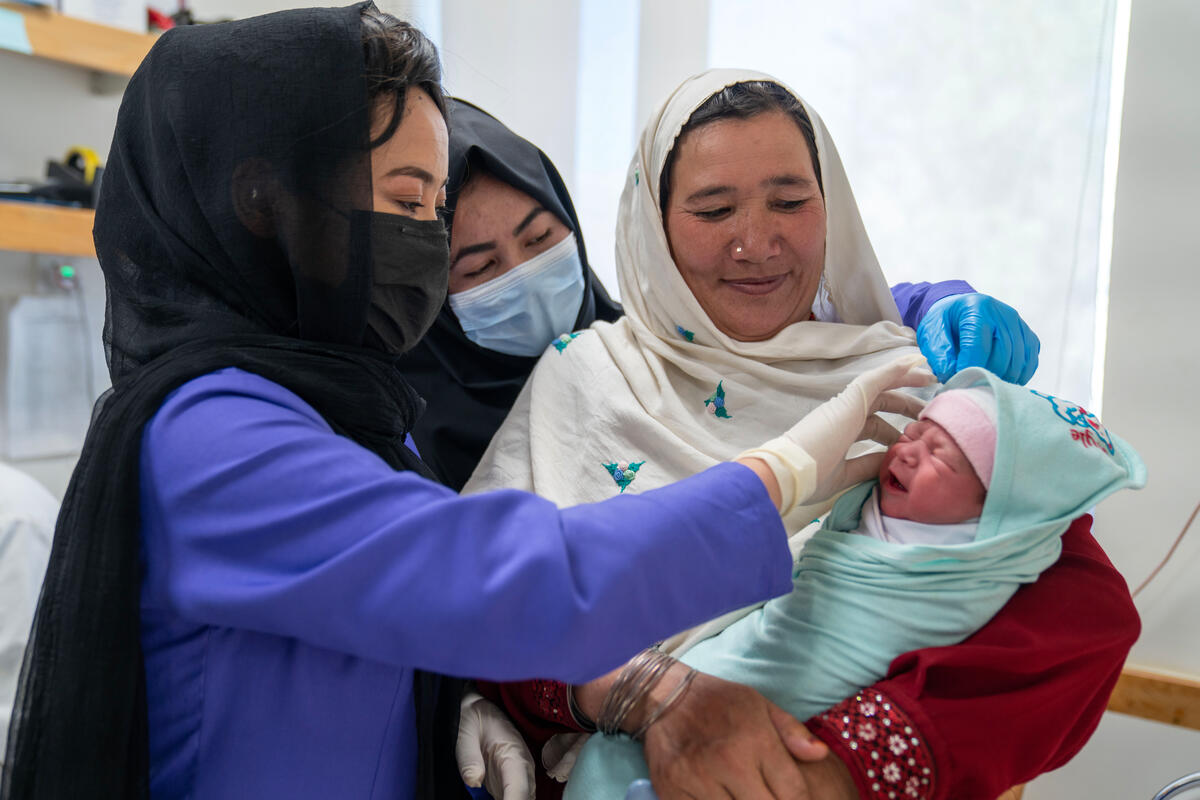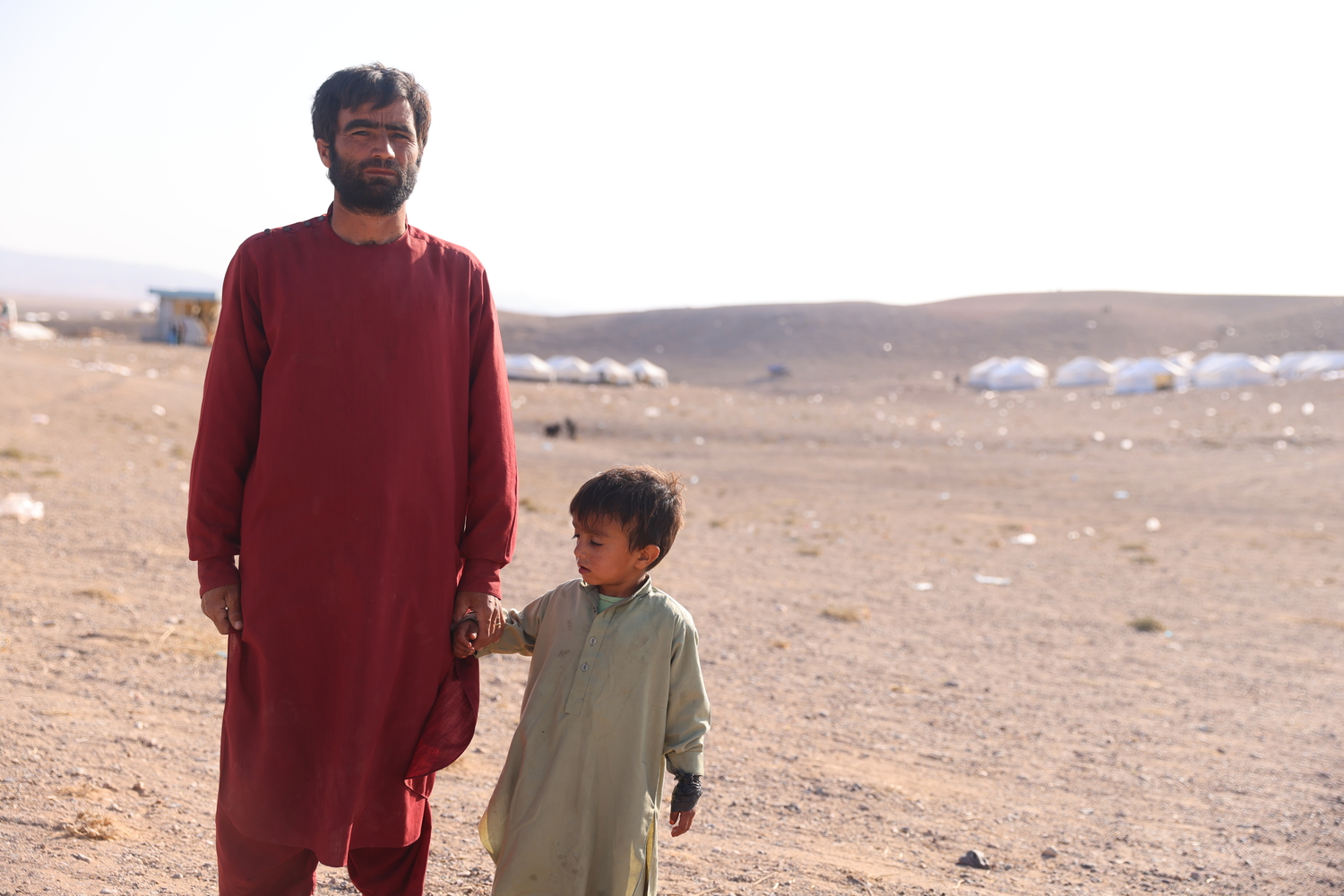Afghanistan: preparing for return, dealing with flight
Afghanistan: preparing for return, dealing with flight
As UNHCR staff in Afghanistan gear up for a possible return of Afghan refugees, this spring UNHCR workers in southern Pakistan are trying to cope with a swelling wave of Afghan refugees driven from their country by lack of aid, banditry and alleged reprisals by rival ethnic groups.
In Afghanistan, UNHCR is preparing to help as many as 1.2 million Afghans who may voluntarily opt to return to their homeland from Pakistan and Iran this year. While we will provide help to those who decide on their own to return to Afghanistan, the country's fragile security situation and the continuing effects of drought and a devastated economy mean UNHCR cannot yet actively promote large-scale, organised repatriation. Still, in the last six weeks more than 143,000 Afghans have opted to spontaneously return from Iran and Pakistan. For those who opt to go home, UNHCR will open seven voluntary repatriation centres in Pakistan, each with a capacity to process 5,000 people a day. The first is slated to open on March 1 in Tartabek, on the outskirts of Peshawar. It will be followed by the opening of three more centres elsewhere in North West Frontier Province, two in Baluchistan Province, and one in Karachi. In Iran, 10 similar repatriation centres will be established where Afghan refugees will register to return.
But as efforts to help those going back continue, UNHCR staff in Pakistan's south-western Baluchistan province are facing a new Afghan exodus. UNHCR staff in the border town of Chaman report that more than 10.000 people are now massed outside the Kili Faizo registration site and that more may be on their way. Our staff at Chaman say truckloads of Afghans are arriving at the border every few minutes. In addition to the some 30,000 people who have been registered at UNHCR's new camps in the Chaman region of southern Pakistan since January 1, we have over 10,000 new arrivals camped at the edge of our Killi Faizo transit site. UNHCR staff at the frontier report seeing home-made tents pitched at the edge of the no-man's-land stretching as far as the eye can see.
Pakistani authorities at the frontier have been extremely cooperative in recent weeks in allowing us to shift these new arrivals, who are mostly Pashtuns, to our new sites further inland.
About half the new arrivals say they come from the Kandahar region, while the rest are arriving from areas in northern Afghanistan like Mazar-i-Sharif and Kunduz. Many of them are Kuchis, a nomadic Afghan tribe. While relief agencies are back in the Kandahar region, we're all encountering the same security problems that are, in part, driving these Afghans to flee.








